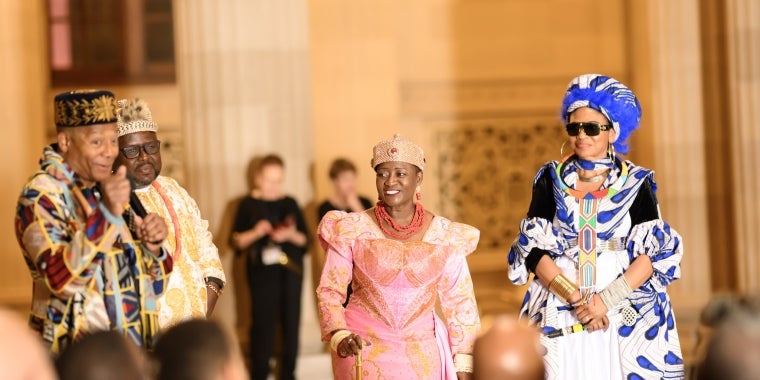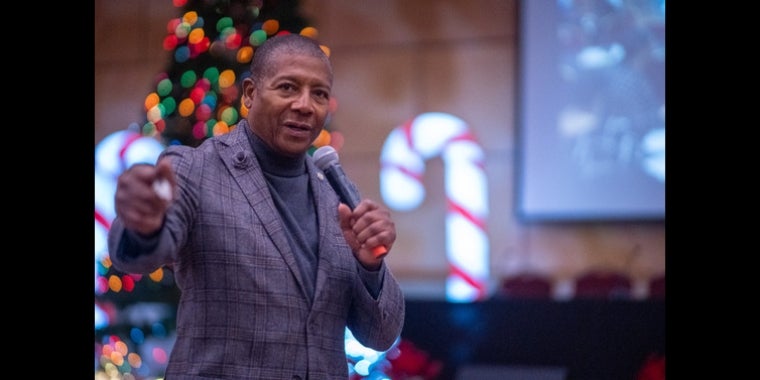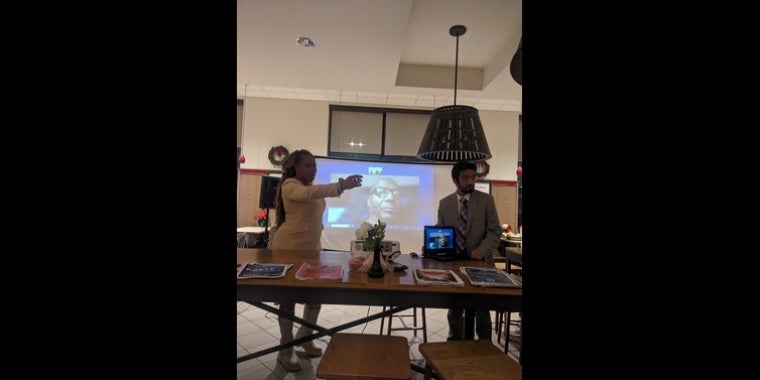
Senator Sanders Supports Progressive State Budget But Says More Needs to Be Done
April 1, 2019

At 3:30 a.m. State Senator James Sanders Jr. (D-Rochdale Village, Far Rockaway) and his Majority Conference colleagues, along with Governor Cuomo, passed a budget that he believes will start to propel New York in a great direction.
"We have had nothing short of a historic and progressive year, so it only makes sense that the budget passed would be progressive as well," Sanders said. "We are off to a great start, but as always, there is much more work to do, my friends."
Here is a breakdown of the wins, the losses, and the parts of the budget that still need work:
WINS
Campaign Finance – The budget establishes a commission to implement a publicly funded campaign system for both statewide and legislative races. The budget provides $100 million annually. The panel will have until December 1, 2019 to release a report to determine how a public financing system would work, including eligibility, financing limits and contribution limits for participating candidates.
Health Care - Parts of the Affordable Care Act (Obamacare) will be codified into state law, including the state’s health exchange, which now exists through executive order. The budget mandates coverage for in-vitro fertilization and egg freezing. The Legislature concurred with the Executive budget to provide $43.6 billion in Aid to Localities for the Department of Health. The Enacted Budget restores $550 million in Medicaid cuts.
Environment – The budget provides an additional $500 million on clean water projects. The budget bans plastic bags statewide with some exemptions for bags purchased in bulk, as well as an optional 5-cent fee on paper bags, with 40% of the revenue supporting local programs to buy reusable bags for low- and fixed-income consumers and 60% of the revenue supporting programs in the State's Environmental Protection Fund. The Environmental Protection Fund will receive a $300 million funding increase.
Expansion of Janus Protections – The budget provides new safeguards for public sector unions by extending Janus protections to all local governments in New York and guaranteeing the right to organize and collectively bargain.
Voting Reform – The budget mandates three hours of paid time off for all New Yorkers to vote on Election Day, provides online voter registration, and includes $10 million for early voting.
Expands Eligibility for the Excelsior Scholarship Free Tuition Program – The budget provides that SUNY and CUNY students whose families make up to $125,000 annually will now be eligible to apply for tuition-free college.
Jose R. Peralta DREAM Act a Reality - First passed by the Legislature earlier this year, the budget implements and fully funds the Jose R. Peralta's DREAM Act for $27 million.
Ensures Source of Income Protections - New York residents who receive some form of lawful source of income including non-wage income or subsidies will now have protection against discrimination in housing. All New York residents, including but not limited to, certain domestic violence survivors, veterans, and disabled individuals, will be able to file complaints through the NYS Division of Human Rights if they are subject to discrimination because of their lawful source of income.
Student Debt – The budget provides $250,000 for the Student Loan Assistance Program funded through the Department of State.
Student Loan Servicers Accountability – The budget requires student loan servicers to have a license issued by the NYS Department of Financial Services. It also establishes a regulatory framework for the industry in the state. This provision creates homogeny and accountability to ensure protections for all consumers with student loan debt in New York State.
LOSSES
Pied-à-terre tax – The budget did not include the pied-à-terre tax, an annual recurring tax on second homes worth $5 million or more. In its place, is a “mansion tax,” a one-time levy that would be charged at the point of sale on multimillion-dollar homes; the tax rate would top out at 4.15% on the sale of properties worth $25 million or more.
WHAT NEEDS WORK
Education - The budget provides a total of $36.4 billion for education aid for New York, a 3.8% increase of $1 billion (which includes a $618 million increase in Foundation Aid). The budget will direct the majority of the extra money (70%) to poorer school districts, with a new formula being implemented. This is inadequate funding to meet the needs of our children and does not satisfy the New York State Board of Regents recommendation of a $2.1 billion increase, including $1.6 billion in Foundation Aid. New York ranks number two in the nation in inequitable school funding.
Criminal Justice - It is good that the budget will end cash bail requirements for those charged with misdemeanors as well as non-violent felonies. However, this is only a partial solution and will not entirely eliminate cash bail. The budget provides that police officers must issue appearance tickets to people facing charges for misdemeanor or class E felonies rather than custodial arrests. The budget includes changes designed to ensure a speedy trial for defendants and a provision to ensure defendants have access to evidence pre-trial.
MTA – Under Congestion Pricing, there will be a toll charge south of 60th Street in Manhattan through the installation of electronic tolling devices. The budget establishes a six-member to create a framework for tolls, exemptions and credits. There will only be a toll charge of once a day and implementation will not begin until December 31, 2020. The plan will bring in $15 billion for mass transit for capital funding. The agreement includes a new property tax surcharge on the sale of high-end homes worth more than $25 million and the collection of internet sales tax revenue. Both provisions together will give the MTA an extra $10 billion for capital expenses. More work needs to be done to lessen the impact on Queens' motorists commuting into Manhattan, south of 60th Street.
Census – The budget provides $20 million for 2020 Census efforts to ensure a complete count, especially of less visible communities. However, there should be funding at $40 million, which is what the New York Immigration Coalition is seeking.



